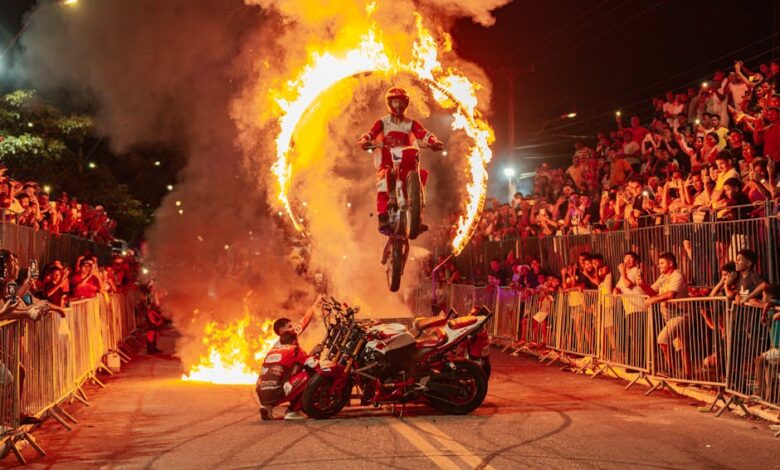The Echoes of Battle: A Rivalry Forged in Fire

In the high-stakes world of professional football, rivalries are often the very lifeblood that fuels the drama. Clubs clash, fans wage verbal wars, and managers – the tactical masterminds – become gladiators in a modern-day arena. Yet, every so often, a moment occurs that transcends the ferocity of competition, offering a glimpse into a deeper, more profound respect that exists between truly great competitors.
One such moment recently unfolded, echoing across the footballing landscape and captivating fans and pundits alike. Sir Alex Ferguson, the legendary patriarch of Manchester United, offered a rare and profound commendation to none other than Pep Guardiola, the architect of Manchester City’s recent dominance. It’s a statement that, for anyone who lived through the intense rivalry between these two giants, feels utterly seismic.
Guardiola, of course, has been making history, joining an exclusive club of managerial titans. For Ferguson, a man who built an empire on challenging the status quo and conquering all before him, to acknowledge a rival with such gravitas speaks volumes. It’s not just about current success; it’s about a recognition of genius from one master to another, particularly when you consider their shared, combative past.
The Echoes of Battle: A Rivalry Forged in Fire
To truly grasp the weight of Ferguson’s praise, we must first cast our minds back to a time when Pep Guardiola and Sir Alex Ferguson were adversaries locked in a fierce, albeit gentlemanly, tactical struggle. Twice, in 2009 and 2011, their respective teams met in the UEFA Champions League finals, on Europe’s grandest stage.
These weren’t just any finals; they were defining contests that pitted Ferguson’s formidable Manchester United against Guardiola’s iconic Barcelona side. Barcelona, at the time, was a footballing phenomenon, playing a brand of possession-based, aesthetically pleasing, and devastatingly effective football that redefined the modern game.
United, under Ferguson, were no slouches themselves, boasting a squad laden with world-class talent and an unparalleled winning mentality. Yet, on both occasions, Guardiola’s Barcelona emerged victorious. The 2011 final, in particular, was a masterclass from Barcelona, described by Ferguson himself as the best team he had ever faced – a truly humbling admission from a man rarely short on confidence or self-belief.
Those defeats were undoubtedly painful for Ferguson, a manager who loathed losing and whose competitive fire burned brighter than anyone’s. He watched his meticulously crafted United teams outmaneuvered and outplayed by a revolutionary force. This history makes his recent comments about Guardiola not just surprising, but incredibly significant. It’s the ultimate validation, born not from casual observation, but from direct experience in the crucible of elite competition.
A Master’s Nod: What Ferguson’s Praise Truly Means
So, what exactly does it mean when Sir Alex Ferguson, a man whose word carries immense authority and who rarely praises rivals, singles out Pep Guardiola? It’s far more than a polite nod; it’s a testament to sustained excellence, groundbreaking innovation, and a managerial philosophy that has fundamentally shifted the sport.
Guardiola’s recent achievements, especially leading Manchester City to multiple Premier League titles and a historic treble, have undeniably placed him in an elite echelon. He has now matched, and in some aspects, even surpassed the domestic dominance of Ferguson’s United. This kind of sustained success, built on tactical acumen and relentless ambition, is something Ferguson understands intimately.
Beyond the Scoreline: The Craft of Coaching
Ferguson’s praise isn’t merely for trophies won; it delves deeper into the craft of coaching. He recognizes the immense difficulty of maintaining a winning edge over many years, of constantly evolving tactics, and of managing the egos and ambitions within a squad of highly paid athletes. Guardiola, much like Ferguson, has mastered this delicate balance.
Both managers share an obsessive attention to detail, an unyielding will to win, and a profound ability to instill their philosophy into every single player. Ferguson, the man who famously rebuilt United teams multiple times, will surely appreciate Guardiola’s capacity to refresh and motivate his City squad, preventing complacency and continually pushing for new heights.
The Weight of History: True Greatness Recognizes True Greatness
Perhaps the most powerful message here is that true greatness recognizes true greatness, regardless of past rivalries. Ferguson, a manager who left an indelible mark on football, understands the monumental effort and genius required to achieve what Guardiola has done. It’s a moment of reflection, where personal rivalry gives way to mutual admiration for an extraordinary peer.
This gesture also speaks to Ferguson’s own evolution and perspective. While fiercely competitive during his career, he has always possessed a deep understanding of football’s broader tapestry. His praise for Guardiola isn’t just about City’s success; it’s about acknowledging a figure who will undeniably be placed alongside him in the pantheon of football’s greatest ever managers.
Legacy and Evolution: The Shifting Landscape of Modern Football
The dialogue between these two managerial giants also highlights the ever-evolving nature of football. Ferguson’s era, while incredibly successful, relied on a different tactical framework, often emphasizing directness, powerful wing play, and a relentless attacking spirit. Guardiola, on the other hand, ushered in an era of intricate possession, high pressing, and positional play that many now attempt to emulate.
What unites them, despite their tactical differences, is a shared commitment to excellence and innovation. They both pushed the boundaries of what was thought possible within the game. Ferguson’s longevity and adaptability allowed him to dominate across different eras, while Guardiola has consistently refined his revolutionary approach, proving its efficacy across various leagues and teams.
Their legacies are intertwined, not just through their past encounters but through their enduring influence on how football is played, coached, and understood. This mutual respect serves as a powerful reminder that while tactics and philosophies may change, the core principles of leadership, vision, and an insatiable desire for improvement remain timeless virtues in any field, particularly in the demanding world of elite sport.
Conclusion
Sir Alex Ferguson’s commendation of Pep Guardiola isn’t just a headline-grabbing statement; it’s a moment of profound significance in football history. It represents the ultimate recognition from one titan to another, transcending the bitterest of past rivalries to celebrate unparalleled achievement. For those of us who cherish the beautiful game, it’s a poignant lesson in sportsmanship, humility, and the enduring power of respect.
It reminds us that even at the highest echelons of competition, where victory is everything, there is still room for genuine admiration for a formidable opponent. Both Ferguson and Guardiola have pushed the boundaries of what’s possible in football management, leaving indelible marks on the sport. Their shared story, now punctuated by this remarkable praise, will be told for generations, a testament to two unparalleled figures who not only competed against each other but ultimately, learned from and respected one another’s genius.





